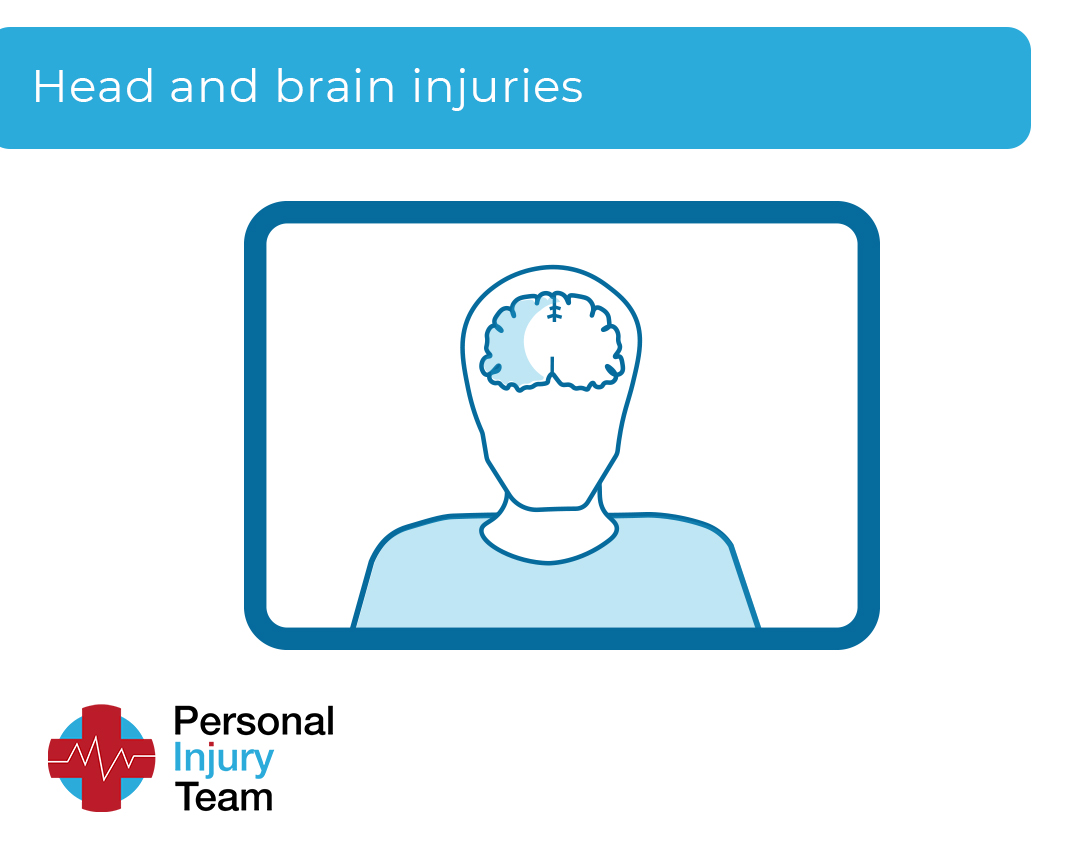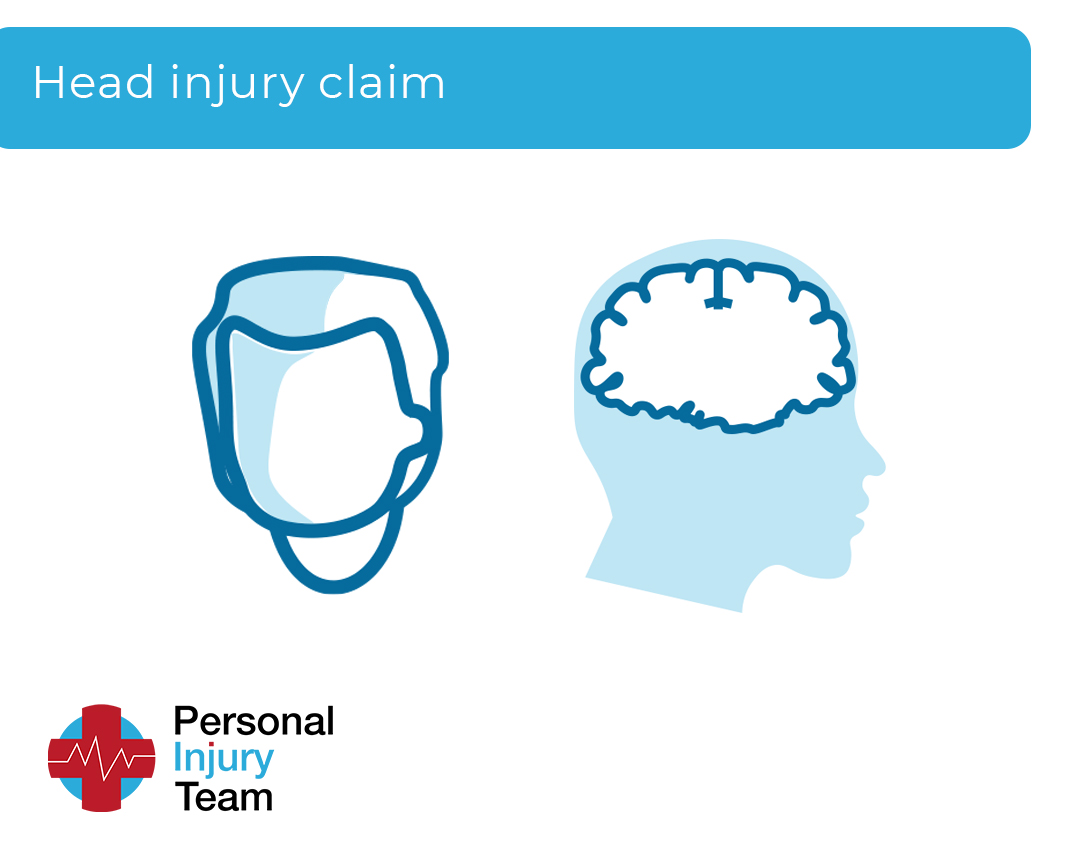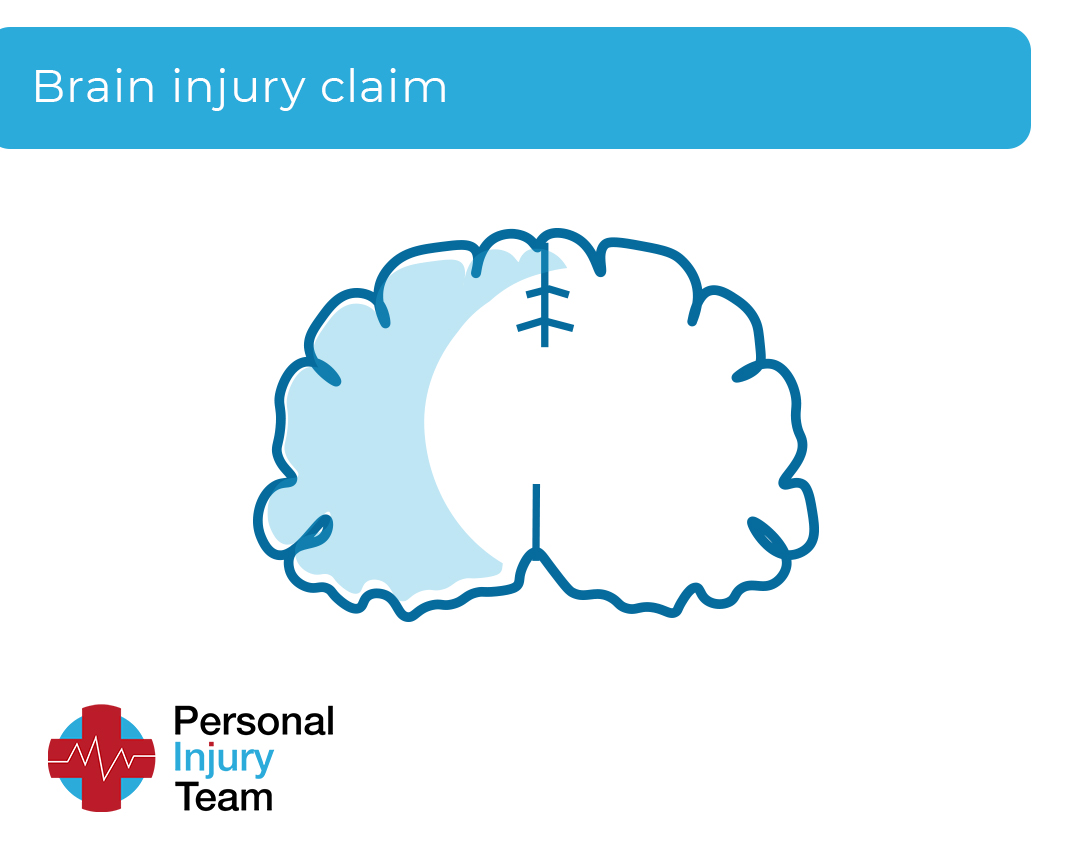A brain and head injury claim for compensation can be complex due to the nature of the injury and the long-term effects it will have on your life. Recovery after a head and brain injury can be slow, and many people make little or limited recovery.
A head and brain injury claim (known as a Traumatic Brain Injury or TBI) can follow a road traffic accident, a simple fall at work or even due to medical negligence. You may make a claim for compensation against those responsible for your head and brain injury.
Your personal injury solicitor seeks to recover damages through a claims process. If you have been injured, and your life impacted by an accident that was someone else’s fault, a claim for compensation seeks financial redress for your injuries and financial losses.
If you have been injured in an accident and it was not your fault, The Personal Injury Team No Win No Fee solicitors will file your compensation claim and get you the money you deserve.

Table of Content
Head injury claims
Head injury claims seek compensation for the injury to your head, scalp and brain that was not your fault. A head injury can be mild, moderate or severe but may be with you for life.
Your head injury claim could be for a cracked skull or a fracture to a bone in the head. Injury to the scalp can lead to unsightly scarring and hair growth problems.
A No Win No Fee personal injury solicitor seeks compensation for a head injury that was not your fault.

Common head injury claims
Common head injury claims are often seen after sports accidents, road traffic collisions and accidents at work and in the home.
Some common head injury claims are for:
A skull fracture when falling from a height
A skull fracture when falling from a height can happen at work or in any unprotected area such as stairs or balconies. The fall might not be your fault, and the skull fracture may result in you being in hospital and off work.
A skull fracture is a severe injury that can drastically alter and impact the lives of the person injured and their family.
Head injury from a road traffic accident
Head injury from a road traffic accident can happen to a driver, passenger, pedestrian, or cyclist. The impact of any crash is often felt in the head, with a cracked skull, lacerations and nerve damage being common head injuries.
You may claim compensation for the injury and the costs to your life.
Cracked skull from a sporting accident
A cracked skull from a sporting accident is seen in impact sports such as rugby and football, falls at equestrian events, and even poorly maintained swimming pools.
The organising sports body or club might be responsible, and you can seek damages for the injuries and ongoing costs.
Scars and lacerations from falling objects
Scars and lacerations from falling objects lead to claims at work when an incorrectly stored box or pallet hits someone below.
Objects falling from scaffolding onto pedestrians or workers cause scars and lacerations as well as other head injuries.
Any head injury from an accident that was not your fault may lead to compensation claims for the costs of treating the injury and damages for the changes to your life.
Brain injury claims
Brain injury claims are for the head injury that damages your brain. It can be an open injury due to a break in the skull or a closed one, such as a blunt force injury.
Brain injuries can be very severe and may dramatically affect your life. A Traumatic Brain Injury (TBI), may have life-long devastating effects with slow or little recovery. Such injuries affect not only the injured person, but their family too.
You may seek compensation for any brain injury that was not your fault.

Common brain injuries
Common brain injuries happen from falls from a height or even the slightest trip on a busy street. You can get a brain injury from an assault or from birth complications.
Some common brain injury claims are for:
Brain injury from an accident at work
A brain injury from an accident at work is seen in factories, building sites, farmyards, scaffolding, and anywhere there is a lack of duty of care by an employer.
A brain injury may result from a fall downstairs or from height, being hit by a forklift truck or other heavy machinery or being hit by a heavy object falling from a height.
You might be able to claim compensation for the brain injury from an accident at work.
Medical negligence causing brain injury
Medical negligence causing brain injury may arise when oxygen and / or blood supply to the brain is reduced or stopped altogether for too long by a doctor during surgery or by delays in having surgery. There may be a missed opportunity to timeously treat or even prevent a stroke, causing brain damage.
Damage may also be done by poorly carried out brain surgery.
You may be able to claim damages for the medical negligence leading to brain injury and the impact on your life.
Medical negligence at birth
Medical negligence at birth (known as a birth injury claim) may cause disruption to the oxygen going to the baby’s brain, and many new-born children suffer catastrophic and lifelong injuries. Such claims tend towards the very highest of awards due to the potential for lifelong care, housing needs and a myriad of other considerations.
The medical negligence may be due to delays in delivering a distressed baby, mistakes made during the delivery of the baby or incorrect use of forceps or in monitoring the foetal heartbeat.
The child’s family might be able to seek compensation for the brain injury due to medical negligence at birth and the life-long costs of care.
Impact to the head when playing sport
Impact to the head when playing sport can cause brain damage, cut off oxygen to the brain and cause concussion. The brain injury may be due to inadequate sports facilities, incorrect training methods or lack of care when an injury happens. This is especially topical at the moment, with increased awareness of and research into the potential long term effects of frequent but minor head impacts.
A concussion is classed as a brain injury and although usually mild, repeated concussions may significantly increase one’s chances of suffering long term effects. You may be able to claim against the sports club, which should take precautions with all head injuries and remove you from the pitch after a head injury.
Brain injury claims for compensation seek damages against those responsible for the accident.
Brain injury from an assault
Brain injury from an assault is common. Personal, physical assaults can cause severe brain injury.
A punch or kick to the head, being hit with a blunt instrument or falling when assaulted and hitting your head can all do severe damage to the brain.
You may bring a claim for compensation against those responsible or the premises where the assault happened if they were seen to be lax in their security. In the event there is no known defendant, or if the defendant is uninsured and does not have means to satisfy any award, it may be possible to make a claim for compensation to the Criminal Injury Compensation Authority – although the scheme is far from ideal and woefully inadequate for a life changing injury as compensation is capped at £500,000.
Road traffic accident brain injury
Road traffic accident brain injury is a very common source of compensation claims. Being hit by a car going at speed can severely damage the brain of the driver and passengers.
A pedestrian, motorbike driver or cyclist can be knocked by a car and suffer a brain injury on impact despite wearing a helmet.
A brain injury claim for compensation will aim to recover damages for the brain injury, the impact on your life, and if appropriate the family of the injured person.

How much can I claim in brain injury and head injury compensation?
In a brain injury and head injury claim, you can claim damages ranging from a few thousand pounds to more than £10 million and sometimes significantly more than that. How much compensation you can claim depends on the injuries suffered and the financial effect of those injuries on your life.
If someone else is responsible for your personal injury, you can claim compensation from their insurance company.
Sample compensation amounts in a personal injury claim are as follows. Please note these are figures for the injuries only. Financial losses would apply in addition and invariably in such cases are worth significantly more than the physical injury itself:
Can I make a brain injury claim on behalf of a loved one?
Yes, you can make a brain injury claim on behalf of a loved one. Any severe head injury may affect other family members in terms of care needs and financial costs, and it is very true of a brain injury.
If your loved one is the family’s sole or primary earner, you may claim on their behalf for lost income to the home. The family may suffer from what happened to a loved one but might be able to claim compensation for the damages.
If a loved one is incapacitated due to the brain injury, the family may seek damages against those responsible. A solicitor can guide you through the legal process and advise you on all aspects of the case.
A No Win No Fee personal injury solicitor will seek the compensation you deserve for the loved one’s brain injury and the financial effects on your life.
